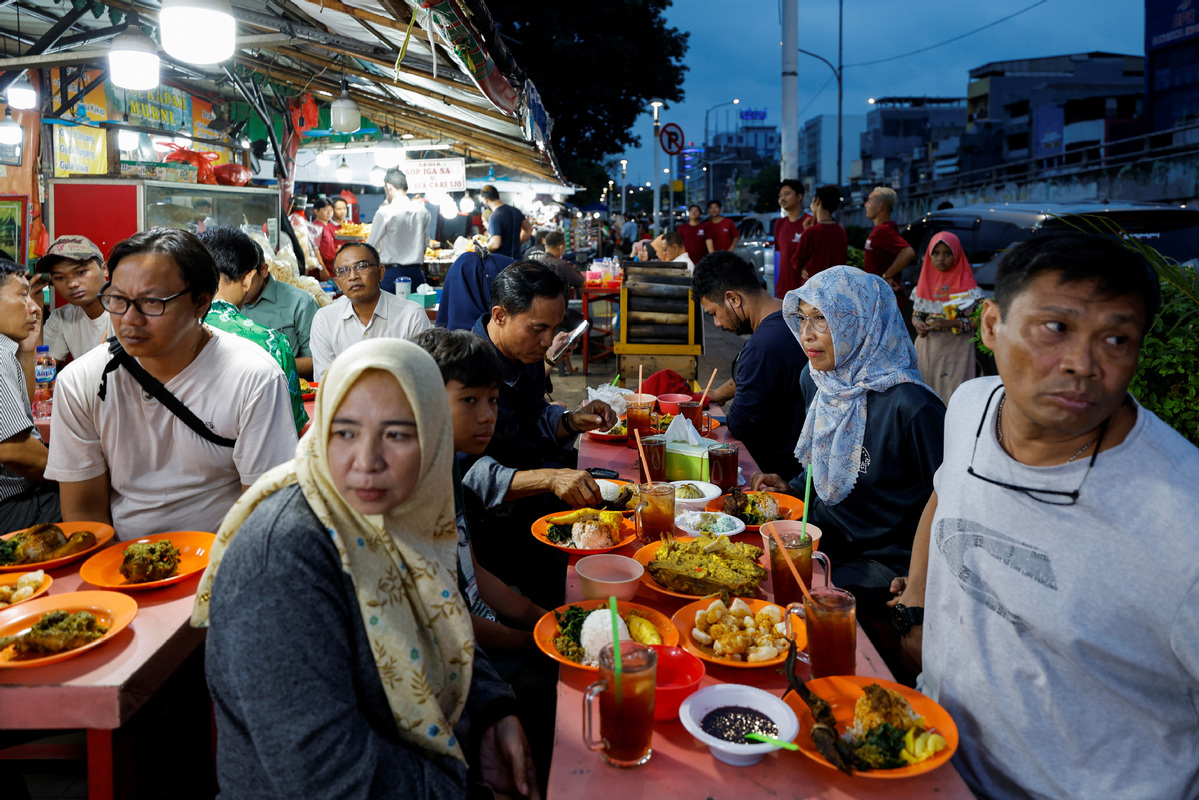Food costs sour Ramadan mood in Indonesia






Elevated prices of rice and other staples prompt many families to scale back celebrations during the Muslim holy month
High food prices have weighed on Ramadan celebrations in Indonesia this year, as a dry spell has reduced local supply of staples like rice and sugar.
Commodity prices in the world's largest Muslim-majority nation usually go up during Ramadan as families usually consume more food during sahur. Sahur is the early morning meal that gives Muslims enough nutrients to sustain them until they break the day-long fast at sunset (known as iftar). It is also during Ramadan that Indonesians shop for more food, clothes and decorations as they prepare for the Eid al-Fitr — a festival that marks the end of Ramadan.
But the El Nino weather phenomenon in the second half of 2023 has caused a decline in agricultural output and led to a spike in food prices. Inflation rate climbed by 2.75 percent in the country last month on the back of higher food prices. In October, a kilo of premium rice was retailed at 13,540 rupiah ($0.87). This week, as the global Muslim community welcomed the start of Ramadan, the same commodity is being sold at over 16,000 rupiah/kg, according to local media reports.
The Indonesian government will import 3.6 million metric tons of rice this year to beef up local supply. This is on top of the 3.5 million tons that were imported in 2023, and marks a sharp rise from the amount of rice that was imported in the previous years. From 2019 to 2022, the average annual rice import was less than 500,000 tons.
Teguh Wibowo, a worker at a Jakarta-based manufacturing company, said that he and his wife are unlikely to visit their extended family in Central Java and Sumatra during the Eid festival, due to the high food and transport prices.
"I hope the government will succeed in controlling prices, but I am not certain about it. So our family doesn't think about 'mudik' anymore," Wibowo said, alluding to the annual Eid exodus to hometowns.
He told China Daily that his family is cutting down on the sahur and iftar meals to save money.
Tomsi Tohir, inspector general of Indonesia's Ministry of Home Affairs, has instructed regional authorities to conduct market operations as a way to control prices. He said that Bulog, the state logistics company, has assured that rice stocks in all regions are adequate, according to a report filed by Indonesian news agency Antara.
Prices of sugar and cooking oil are likewise going up. Sugar prices are at 17,025 rupiah/kg this week, up from 16,890 rupiah/kg in November. Cooking oil currently averages at 15,720 rupiah per liter, which is lower than 17,825 rupiah per liter recorded in the first week of March. But in some provinces like East Nusa Tenggara, cooking oil is being sold at over 30,000 rupiah per liter.
Trade Minister Zulkifli Hasan said the increase in cooking oil prices is due to decline in the realization of domestic market obligation (DMO) by local palm oil producers. Under the DMO policy, palm oil producers are only allowed to export after they have sold a portion of their products to the local market. Indonesia is the world's biggest palm oil exporter but the government uses DMO to rein in exports and stabilize local supply.
Vonny Gunawan, a restaurateur in Jakarta, is worried about the higher prices of rice and other commodities. She hopes the government can enforce measures to bring prices down to keep her business afloat.
"I may make some profit during Ramadan, but it could be small," she told China Daily, shrugging it off, saying that "small profit is OK".




























